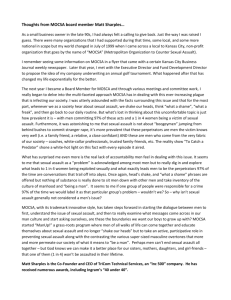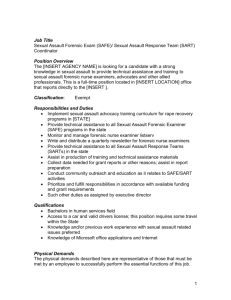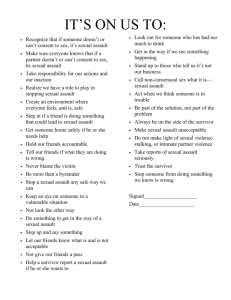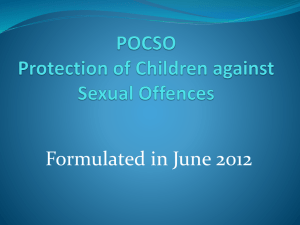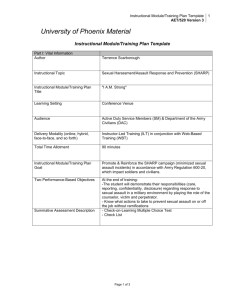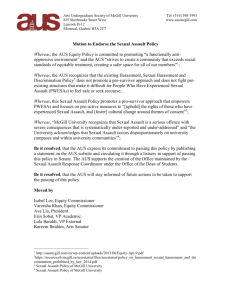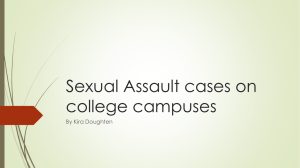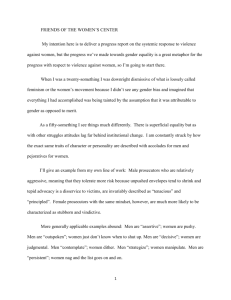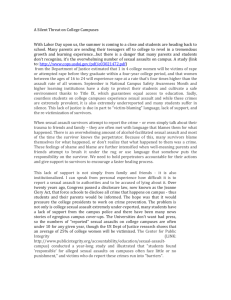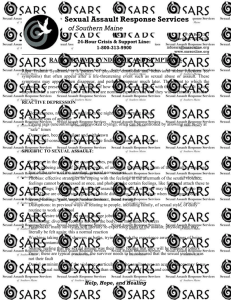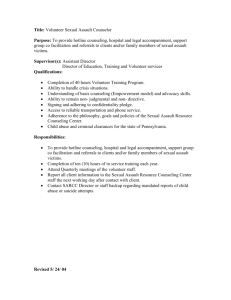midtermreview - Research Computing At USF
advertisement
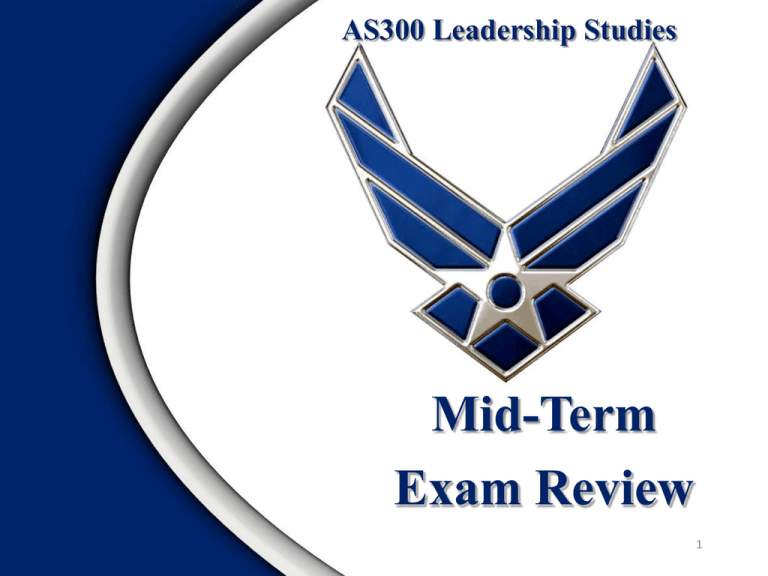
AS300 Leadership Studies Mid-Term Exam Review 1 Leadership Theory • Define the concept of leadership • Explain the relationship of leadership and management. • Explain the ways of determining leadership effectiveness. • Identify the major research theories of leadership and its processes. • Explain the Interactional Framework of Leadership. 2 Leadership Theory Be able to Answer Questions like; What are the three factors identified in the Interactional Framework for Analyzing Leadership model that influence each other and the leadership process? 3 Leadership Theory Leaders, followers and situations 4 Air Force Leadership • Explain the purpose, application, and scope of Air Force leadership. • Describe the fundamental elements of Air Force leadership. • Summarize the components of Air Force leadership. • Identify the major research theories of leadership and its processes. 5 Air Force Leadership Be able to Answer Questions like; True or False The Air Force cannot accomplish the mission without Airmen. Leaders must motivate, develop, and support their people. 6 Air Force Leadership True 7 Profession of Arms • Describe the nature of the military profession. • Describe the military’s two-fold responsibility to the state. • Explain why the United States has its officers take an oath to support and defend the Constitution. 8 Profession of Arms Be able to Answer Questions like; The United States has its officers take an oath to support and defend the constitution because: 9 Profession of Arms The Constitution embodies the ideals Americans believe in. 10 Self-Assessment • Describe the behavioral tendencies characteristic of each dimension of the DiSC model. • Identify appropriate task selections based on behavioral tendencies. 11 Self-Assessment Be able to Answer Questions like; According to the self-assessment lesson, which dimension focuses on shaping their environment by overcoming opposition to accomplish results? 12 Self-Assessment Dominance 13 Managing Stress • Describe what defines stress and how it impacts the work environment. • Explain the various reactions to stress. • Describe various coping strategies. • Explain time management techniques to alleviate stress. • Summarize how to develop resiliency to stress-related situations. 14 Managing Stress Be able to Answer Questions like; What is considered the best kind of coping strategy to deal with stress? 15 Managing Stress Enactive 16 Sexual Assault Prevention & Response • Define Sexual Assault as defined by the Department of Defense. • Distinguish between what constitutes sexual consent and what does not. • Identify the Department of Defense policy on confidentiality. • Identify risks associated with alcohol use as related to perpetration and victimization. 17 Sexual Assault Prevention & Response • Describe the roles of perpetrator, facilitator, bystander, and victim. • Explain the significance of wingmen as related to sexual assault prevention and response. • Describe the role of the Sexual Assault Response Coordinator (SARC) and link this role to the Victim Advocate (VA). 18 Sexual Assault Prevention & Response Be able to Answer Questions like; The Air Force policy on sexual assault is: 19 Sexual Assault Prevention & Response Zero Tolerance 20 Critical Thinking • Describe the concept of critical thinking. • Explain how to apply the nine intellectual standards to the elements of reasoning. • Differentiate between effective and ineffective questions. 21 Critical Thinking Be able to Answer Questions like; Critical thinking is the ability to assess one's own reasoning in a logical way. Which of the following skills is important in order to employ critical thinking? 22 Critical Thinking Critical listening 23 Air Force Effective Writing • Describe the resources available in the T&Q. • Identify common problems in writing. 24 Air Force Effective Writing Be able to Answer Questions like; Identify the common error/pitfall in writing contained in the following example: “We must comply with the standards and criteria for controlling and reducing environmental pollution.” 25 Air Force Effective Writing Word doubling 26 Basics of Briefing • Define the Seven Steps to Effective Communication. • Describe the differences between Impromptu, Prepared (formerly Extemporaneous), and Manuscript briefings. 27 Basics of Briefing Be able to Answer Questions like; During a military briefing, visual aids serve which purpose(s)? 28 Basics of Briefing Serve as notes Clarify meaning Enhance retention for the listener Keep the audience focused Provide direction 29 Team Building • Differentiate among the four stages of group growth. • Describe the differences between groups and teams. • Identify the characteristics of effective teams. • Identify the principles of effective teams. 30 Team Building Be able to Answer Questions like; True or False Ten local union members were called together as part of a rally to support organizing local textile factories. The members showed up and rallied, then went home. This rally was an example of a team. 31 Team Building False 32 Problem Solving • Summarize the objective of the Eight-Step Problem-Solving Process. • Identify Problem-Solving Process Steps. • Explain the Eight-Step Problem-Solving Process. • Differentiate between appropriate and inappropriate application of the steps in the Problem-Solving Process. 33 Problem Solving Be able to Answer Questions like; True or False Problem solving begins with identifying the problem so you don’t develop a terrific solution for the wrong problem. 34 Problem Solving True 35 Followership • Explain Kelley's Two-dimensional Model of Follower Behavior. • Identify the characteristics of the effective follower. 36 Followership Be able to Answer Questions like; True or False Your commander issues an order, you question its intent with immediate supervisors, then the commander, offer a possible alternative, and allow the commander to adjust his order, if he chooses. 37 Followership True 38 Any Questions? 39
